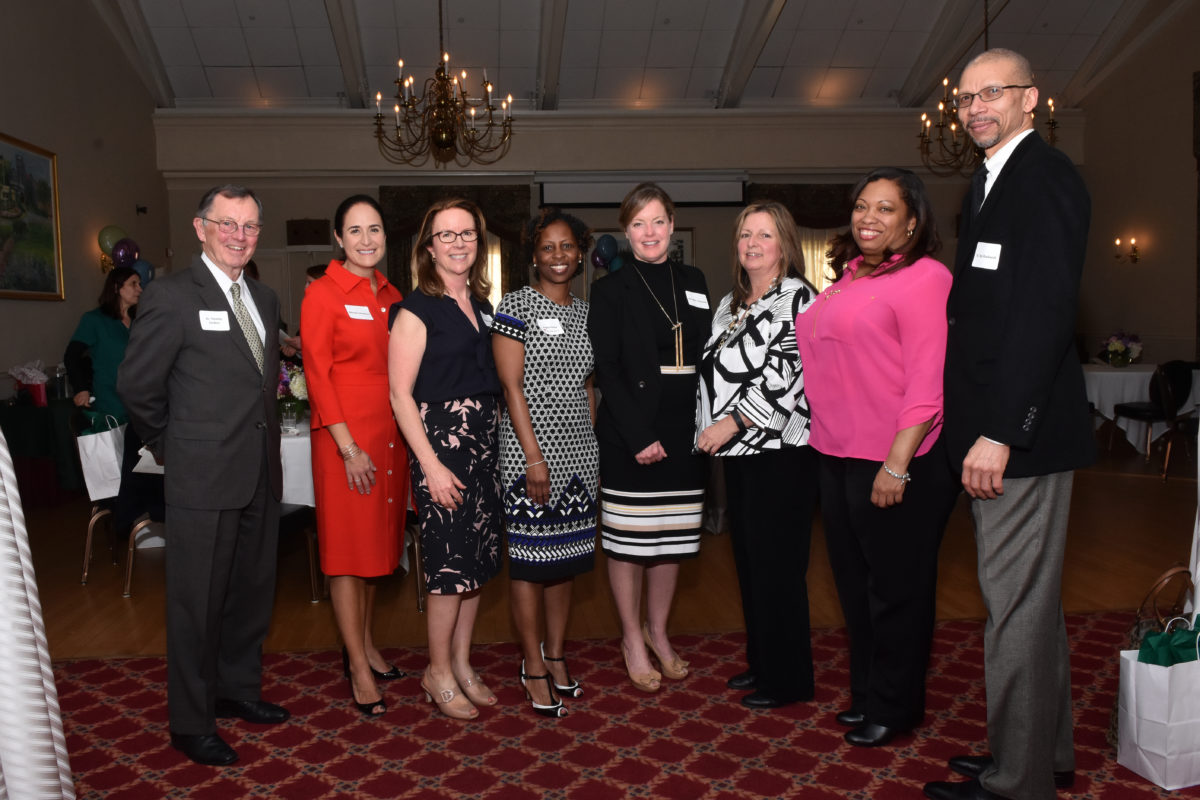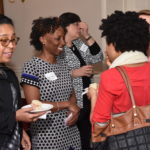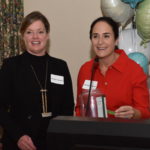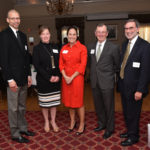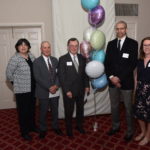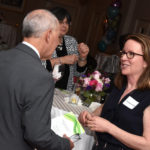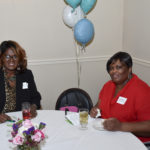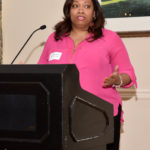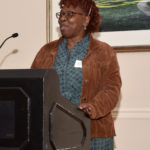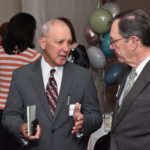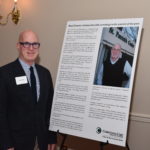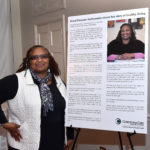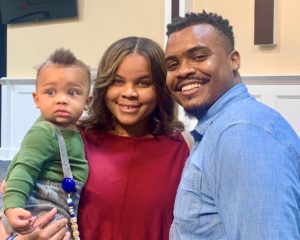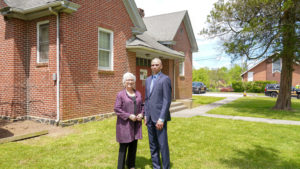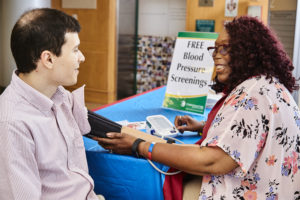Christiana Care Blood Pressure Ambassador Reneé Beaman, RN, loves the work she does to raise awareness of health issues at Bethel A.M. E. Church in Wilmington. She shared her experiences at the first Blood Pressure Ambassador Appreciation Event, April 12 at the University and Whist Club.
In February, American Heart Month, Beaman and fellow ambassador Suzanne Tait offered blood pressure screenings on the second and fourth Sundays. What they discovered among the 72 church members tested was troubling: almost half had elevated blood pressures.
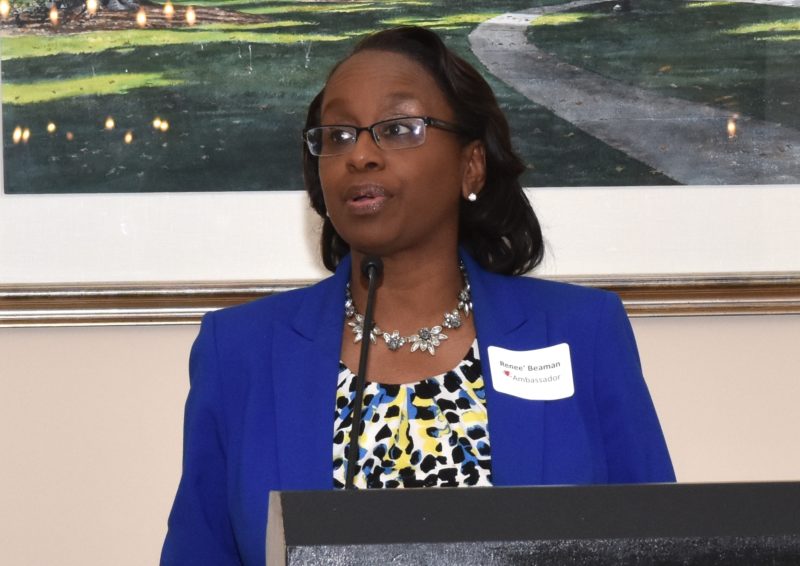
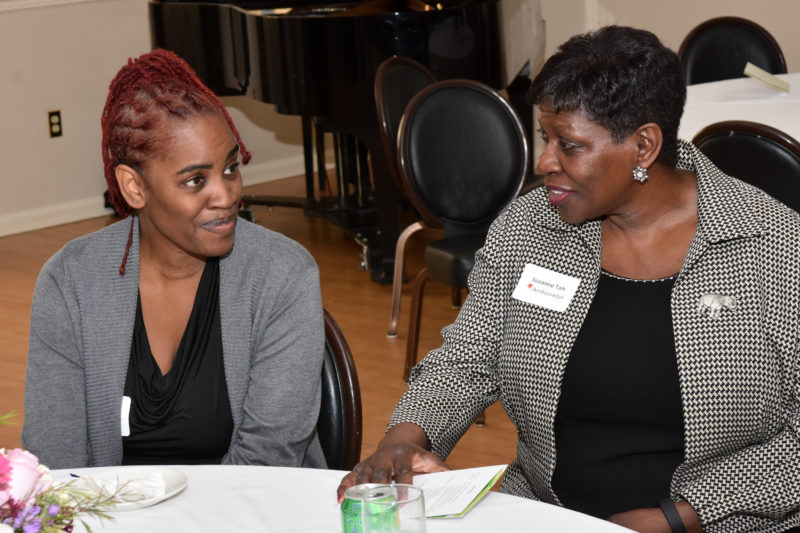
Beaman and Tait knew church members needed to follow up with a visit to a primary care provider, because high blood pressure affects nearly every organ, posing an elevated risk for stroke, heart failure, kidney disease and other issues.
“Though what we learned was disturbing, I was encouraged that I had an opportunity to educate my church family about the importance of these screenings,” said Beaman, who is First Lady of Bethel, founder of an HIV/AIDS awareness program at the church and director of the Division of State Service Centers.
To follow up this spring with her congregation, Beaman planned a Wellness Sunday with exercise during the service and a walk after church.
“All this came out of the Blood Pressure Ambassadors program, and it’s exciting,” Beaman said.
The Blood Pressure Ambassador Appreciation Event was a welcome opportunity for team members from the Center for Heart & Vascular Health to express their gratitude to the 80 volunteers who, equipped with blood pressure cuffs, engage with their communities to increase health awareness.
This year volunteers are on track to reach 3,000 individuals with screenings.
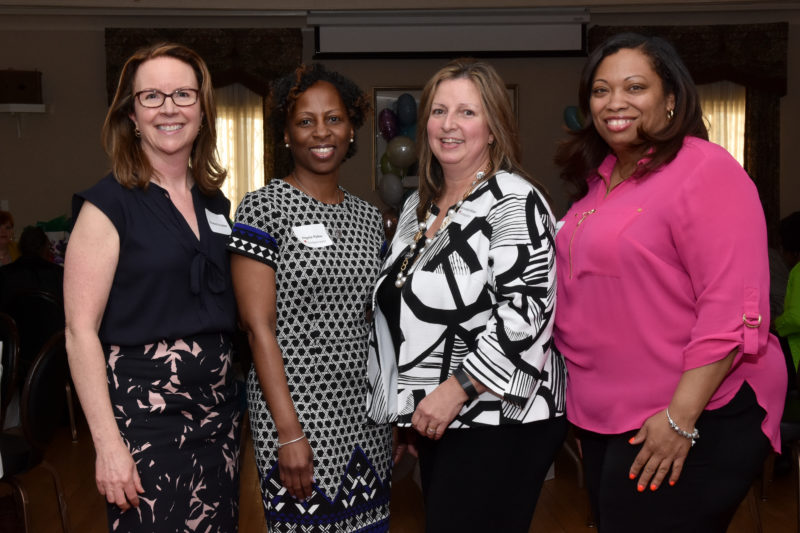
“We have wonderful volunteers who go out and deliver a key message related to high blood pressure and how to make lifestyle changes,” said Elisabeth Bradley, MS, APRN, clinical leader, Cardiovascular Prevention Program. “It’s your dedication and passion, combined with a desire to make a difference in the health of the community, which has made the program a success.”
The Blood Pressure Ambassadors Program began in 2011 with 20 volunteers in Wilmington’s African-American communities. Screenings began at festivals and special events, and have since branched out to neighborhood locations such as the Police Athletic League, Wilmington Shoprite and a variety of churches, often offering a monthly schedule of screenings.
“The lack of education about the importance of blood pressure has been a missing piece in our communities, and we add that, empowering people to be more active in controlling their health,” said Blood Pressure Ambassador Susan Sinigaglio, MSN, RN, CCRN, a nurse at the Center for Heart & Vascular Health.
An advisory committee of community leaders helps connect the program to new organizations, and the ambassadors often enlist friends to join, said Project Manager Angela Parker, MSN, RN-BC, who hopes to have 100 ambassadors by year’s end.
“Angela is a terrific leader and we are really proud of this program,” said Timothy J. Gardner, M.D., medical director, Center for Heart & Vascular Health. “We began the ambassadors because we are committed to improving the health of the community. We believe, if we can help people become aware of their risks, they will make contact with health providers and get their blood pressure treated, reducing the potential for stroke and heart attack.”
Dr. Gardner also thanked the program sponsors: the Astra Zeneca Corporation, Astra Zeneca Health Care Foundation and The Champions for the Center for Heart & Vascular Health. “We greatly appreciate their generosity,” he said.
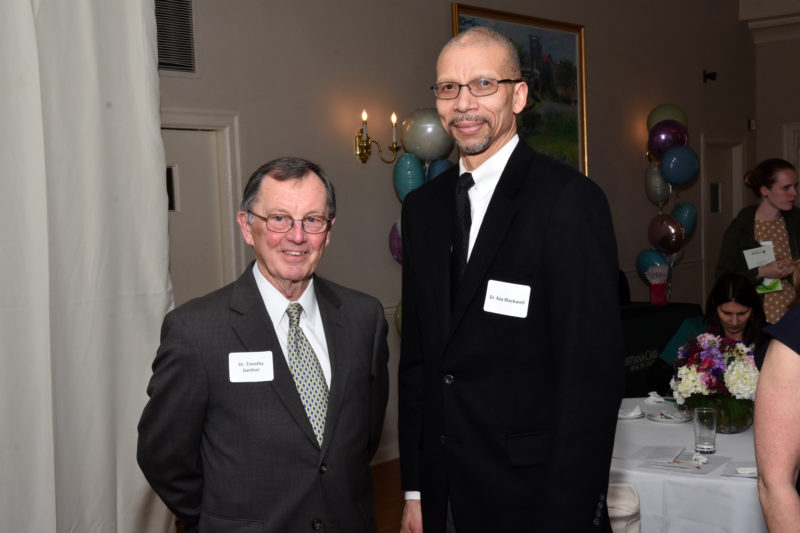
One of the innovators of the program was Ray Blackwell, M.D., cardiovascular surgeon, who now chairs the Blood Pressure Ambassador Advisory Committee. He became aware of health disparities in Wilmington, in terms of both diagnosis and treatment, and the fact that about 40 percent of African-Americans have high blood pressure.
The health issue has personal resonance for Dr. Blackwell. As a 20-year-old, he went for military testing and learned his blood pressure was 180/110 but didn’t understand how at-risk he was.
“Luckily I learned early, went to see a physician and started taking medication,” he said. “Now I take one pill a day and so far have had no long-term effects of hypertension.”
Dr. Blackwell said the program was designed to be a peer-to-peer outreach with neighbors assisting neighbors because “it’s not always easy to get people to Christiana Care – so we thought we would send ambassadors into the community.”
The model has worked well, he said, proving the truth of the African proverb: “If you want to go fast, go alone. If you want to go far, go together.”
